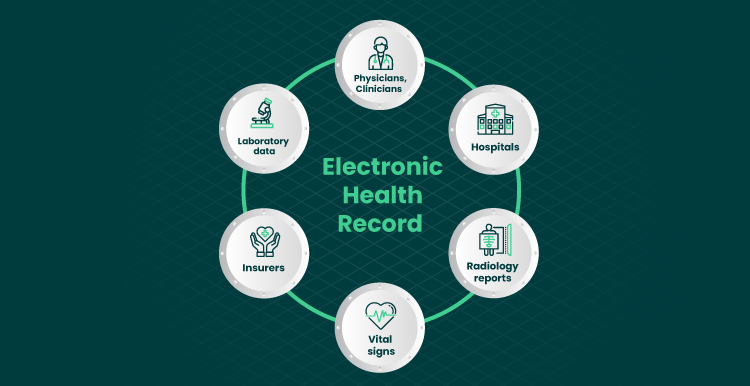Benefits of Electronic Health Records
Improved Accessibility and Efficiency
Electronic Health Records (EHRs) have revolutionized the healthcare industry, offering numerous benefits to healthcare providers and patients alike. One of the key advantages of EHRs is the improved accessibility and efficiency they provide. With electronic records, healthcare professionals can access patient information with just a few clicks, eliminating the need for time-consuming manual searches through paper files. This streamlined access to data allows for faster and more efficient healthcare delivery, ultimately improving patient outcomes.
Enhanced Patient Care and Safety
The implementation of EHRs has significantly enhanced patient care and safety. Electronic records enable healthcare providers to have a comprehensive view of a patient’s medical history, including diagnoses, medications, allergies, and previous treatments. This comprehensive information allows for more accurate diagnoses, better-informed treatment decisions, and reduced medical errors. Additionally, EHRs provide real-time alerts and reminders, ensuring that healthcare professionals are aware of any potential drug interactions or allergies, thus further improving patient safety.
Increased Coordination and Collaboration
EHRs promote better coordination and collaboration among healthcare providers involved in a patient’s care. The electronic nature of these records allows for seamless sharing of information between different healthcare facilities, departments, and specialists. This facilitates a more integrated approach to healthcare, enabling all providers involved to have access to the same up-to-date information. Improved coordination and collaboration ultimately lead to more efficient and effective healthcare delivery.
Cost Savings and Efficiency
By transitioning to electronic health records, healthcare organizations can experience significant cost savings and improved efficiency. With EHRs, there is a reduction in paper and storage costs associated with traditional paper-based record-keeping. Moreover, electronic records eliminate the need for duplicate tests and unnecessary procedures, as healthcare providers can easily access a patient’s complete medical history. This not only saves costs but also reduces the overall burden on patients and the healthcare system.
Enhanced Data Security and Privacy
Data security and privacy are of utmost importance in healthcare. EHRs offer enhanced security measures compared to traditional paper records. Access to electronic records can be restricted to authorized personnel, ensuring that patient information remains confidential. Additionally, electronic records can be backed up and encrypted, providing an extra layer of protection against data breaches or loss. These security measures contribute to maintaining patient trust and safeguarding sensitive healthcare information.
Improved Research and Population Health Management
The adoption of EHRs has facilitated advancements in medical research and population health management. Electronic records provide a wealth of data that can be anonymized and analyzed to identify trends, patterns, and potential areas for improvement in healthcare delivery. Researchers can access large datasets to conduct studies, leading to evidence-based practices and the development of new treatments. Furthermore, EHRs enable population health management by allowing healthcare providers to track and analyze health outcomes at a broader level, leading to targeted interventions and improved public health.

Frequently Asked Questions about Benefits of Electronic Health Records
1. What are the main advantages of using electronic health records (EHRs)?
EHRs offer improved accuracy, accessibility, efficiency, and coordination of healthcare, leading to better patient care outcomes.
2. How do electronic health records enhance patient safety?
EHRs reduce medication errors, improve communication among healthcare providers, and provide alerts for potential adverse drug interactions or allergies.
3. Can electronic health records improve the efficiency of healthcare practices?
Yes, EHRs streamline administrative tasks, reduce paperwork, and enable faster access to patient information, saving time and resources for healthcare providers.
4. Do electronic health records facilitate better communication between healthcare providers?
Absolutely. EHRs allow secure and instant sharing of patient information among authorized healthcare professionals, improving care coordination and collaboration.
5. How do electronic health records benefit patients directly?
EHRs empower patients to access their own health information, participate in their care decisions, and easily share records with different healthcare providers.
6. Can electronic health records help in preventing medical errors?
Yes, EHRs reduce the risk of errors by providing comprehensive and up-to-date patient information, including medical history, allergies, and previous treatments.
7. Are electronic health records cost-effective for healthcare organizations?
While the initial implementation cost may be significant, EHRs can save money in the long run by reducing duplicate tests, minimizing paperwork, and avoiding adverse events.
8. Do electronic health records improve the overall quality of healthcare?
Yes, EHRs enhance the quality of care by ensuring accurate and complete documentation, facilitating evidence-based practices, and enabling data-driven decision-making.
9. Are electronic health records secure and confidential?
Yes, EHRs employ advanced security measures, such as encryption and user authentication, to protect patient data from unauthorized access, ensuring confidentiality.
10. Can electronic health records improve population health management?
Definitely. EHRs enable healthcare providers to analyze aggregated patient data, identify trends, and develop targeted interventions to improve public health outcomes.




